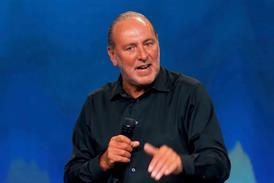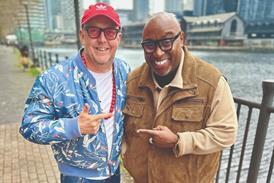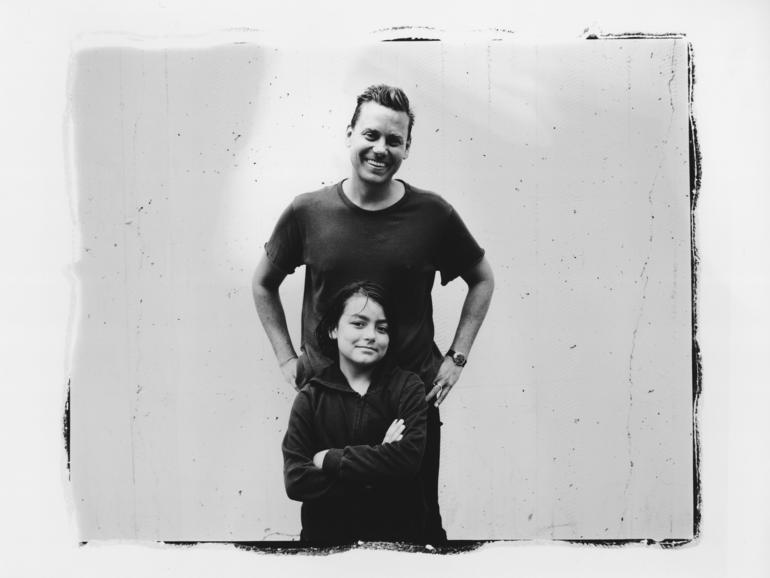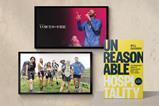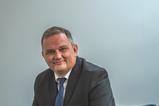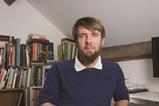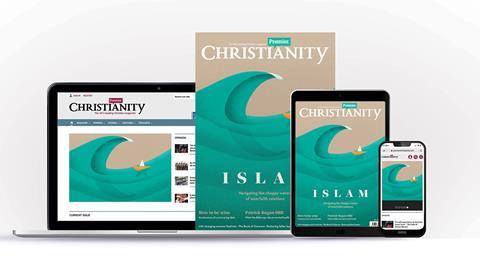The pastor who has been dubbed ‘the orthodox Rob Bell’ explains how he’s reaching millennials in America’s most secular city
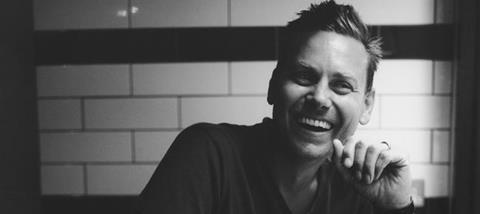
Church planting in Portland on the West Coast of America is not easy. It’s been called the most secular city in the USA (42 per cent of its inhabitants are religiously unaffiliated) and is full of young, well-educated hipsters who love good coffee but wouldn’t be seen dead in a church. In other words, it’s like London.
Despite this challenging context, 37-year-old pastor John Mark Comer is building a thriving congregation. He started his ministry aged just 23 when he co-planted Solid Rock church. It quickly grew into a megachurch and his team adopted a multisite model. But Comer was a workaholic, and it wasn’t long before he hit the wall: “I was dying,” he recalls.
The burned-out pastor quit leading a team of 93 people and overseeing multiple congregations. Instead he focused on leading just one congregation and transitioned it into Bridgetown Church. “I go around telling people, ‘demote yourself – best thing I ever did!’” He’s gathering 1,500 people a week but Comer no longer measures success by the number of bums on seats and is critical of the megachurch model he grew up around.
Comer describes himself as an “introverted, melancholy, bookish reader/writer/teacher” but when it comes to theology he defies categories, admitting his church is “an interesting enigma”. The pastor has moved away from typical American evangelical views on some subjects, including hell (he’s an annihilationist). Comer describes himself as “conservative” and holds traditional beliefs on sexuality and the authority of scripture. But he’s critical of fellow conservatives who appear reluctant to dialogue with those who hold different views.
Mostly vegan (he wouldn’t refuse a steak if I invited him over for dinner) and sporting tattoos of the Hebrew word for ‘Hope’ and a quote from Star Wars, in some ways he’s the perfect image of a hipster pastor. Given Comer’s remarkable gift for communication, it’s easy to see why the popular Christian author Preston Sprinkle has dubbed him “the orthodox Rob Bell”.
Comer is fresh off a ten-hour transatlantic flight when I meet him in London. The eloquent and easygoing pastor is visiting the city with his 13-year-old son Jude. They’re looking forward to seeing the sights before travelling down to Somerset, where Comer will be speaking at New Wine, and Jude is looking forward to catching up on some reading (Comer’s entire family love books). His observation that the ‘spiritual climate’ of the USA’s West Coast is comparable to the UK’s means he’s keen to learn from British pastors while he’s here.
In an attempt to dissuade Comer from his ill-informed view that London has terrible coffee, I take him to Iris & June – a hipster hangout in central London. Comer confirms the coffee shop looks just like Portland. As I quizzed him on simplicity and Sabbath – two topics close to his heart – the pastor revealed his next book will be on the topic of busyness. Comer believes most of us are addicted to our smartphones. As I looked down at my iPhone to see what my next question was, I realised he was right.
I understand your dad was a megachurch pastor, so I imagine Christianity was there from the start?
I have an amazing mum and dad who I’m really grateful for; they were both first generation followers of Jesus. They grew up in the 1960s rock-and-roll scene, and then got radically ‘saved’ (using their generation’s language). Dad was a pastor on staff at one of the first megachurches in America. I grew up in evangelicalism with all of the good and bad – that word means all sorts of different things to different people, and I think it has about outlived its usefulness.
Tell me more about the culture of Portland – how secular is it?
I have no idea how you do this – but someone did a study that found out there are more dogs than Christians in my city! The West Coast in general is very progressive, post-Christian. The spiritual climate is very similar to the UK – the very post-Christian reaction against the way of Jesus, not just indifference to it. It’s a rebellious teenager moment against Christianity.
We’re essentially the first adult generation that is the by-product of divorce on a widespread level. The church I lead is 70 per cent single, mostly under the age of 35. Lots of smart, professional people who come from extreme brokenness in their family origin, and are dealing with emotional trauma, insecurity and lack of clarity about who they are.
We’re also the first adult generation that’s the by-product of the megachurch.A way of doing church that is an event-based, come for two hours, watch other people do something and you consume.
Why have you moved away from the megachurch model?
It did not do a great job of raising people to be apprentices of Jesus of Nazareth.
For us, we’re coming back to the spiritual disciplines. We have to teach people how to pray, how to be alone with themselves and God, how to be in community, how to stay in a relationship longer than a few years, romantic or not. It’s a lot of back to the basics, which in our American context sounds kind of revolutionary.
Leaders on both sides of the Atlantic say it’s hard to reach young people. Yet most of your church is under 35! Why is that?
One of the things we’re passionate about is recapturing the idea that the way of Jesus is a way of life. I think this generation is more experiential than the one before it, and I think that’s a good thing. I think that faith should be experiential.
One of the reasons there’s this huge, growing tribe of de-churched, post-evangelical, angry millennials, who are no longer part of a local church, but they’re listening to this podcast or reading this book or blog – is because often the Church didn’t do a great job of creating a safe place to have tough conversations in an open, honest, intelligent way. And so people had to leave the Church to talk about the Bible, or leave the Church to talk about doubt. But they ended up doing it in a way that was unhealthy and just as toxic.
We would be an interesting enigma theologically, because we have a really high view of the Bible…we would be more conservative, but we don’t look and sound conservative, because we’re willing to have open, hard conversations – whether it’s about the violent portraits of God in the Old Testament, or the redefinition of sexuality and marriage in our culture.
A lot of Christians speaking to millennials do end up more on the left/ liberal side of the spectrum. You’re not quite there though, are you?
I feel like if we’re following Jesus well, both the left and right will be angry with us – maybe that’s just my own psychosis, I don’t know. I grew up in a conservative culture; more on the right. And I can tell you everything that’s wrong with it and everything that’s right about it. The older I got, the less it worked for me. I saw a lot of my friends step into the progressive vision which usually means stepping out of Church, because progressive theology can’t seem to keep Church around it. I would, with a lot of humility, argue that progressive theology kills Church long-term; it kills faith long-term, it kills discipleship to Jesus longterm – especially if you don’t even believe that the writings of the New Testament and the four Gospels are in any way, shape or form authoritative.
What I’m fighting for – and maybe it’s idealistic – but is option ‘C’; a kind of third way which transcends the liberal-conservative divide and still takes the Bible very seriously as scripture, but also as literature, and is open to hard conversations and nuance and reading the Bible in context, but is at the end of the day still really serious about following the teachings of Jesus and the claim that he is Lord over all of our lives.
You had a meteoric rise after you first planted the church aged 23. What happened?
I was the co-planter then I became lead pastor when I was 28. We grew by about 1,000 people a year, for seven years straight. It was this wild ride – exhausting – wake up in the morning and work until I couldn’t move anymore.
We were successful on the outside by the American megachurch metrics. But on the inside, I was dying. At one point we had 93 people on staff – that’s not a pastor, that’s an executive director of a non-profit; it’s not what God made me to do! I had to learn the hard way that I’m a human being; I’m not a machine.
So I demoted myself, stepped down from leading our little family of churches, asked if I could just lead our one in the city. That was three and a half years ago, and I have not looked back. It’s been life-changing.
Dallas Willard said: “hurry is the great enemy of spiritual life in our day”. I’ve been trying to reorder my life around the spiritual disciplines: prayer, fasting, reading the scriptures, Sabbath, a weekly meal with my community, worship on Sunday, living simply through generosity and justice as an affront to materialism, which is so widespread in our culture.
Some of this slowing down has changed how you use technology, hasn’t it?
I would probably have a more negative than positive view of technology. I think it has some pretty catastrophic ramifications for prayer and any kind of creative work.
Paul has that great line: “everything is lawful, but I will not be brought under the power of anything”. I think the real question with the phone, is: does it have power over you? I think most people’s relationship to their phone – to the internet, to social media – falls into the clinical definition of addiction.
I’ve turned my smartphone into a dumbphone, so I don’t have Twitter or email on it. I use it to text, call and for basic functions like maps. I turn it off every night so I have the evening with my family, get a good night’s sleep and then I wake up, pray, do Jesus stuff and do two hours of deep work, before I turn it on again.
You sound pretty worried about technology.
I’m concerned. I mean, every generation has its issues; I think this is one of ours. Millennials are still reading a lot online, but there are some things that you just can’t do in a 1,000-word blog post.
I just read David Instone-Brewer’s fantastic book on divorce and remarriage – best thing I’ve ever read on it. But if you really want to answer the question well, you can’t go read a blog post – you need to spend hours reading that book or an equivalent.
Take the sexuality conversation – what’s shocking to me is not that people are changing their view from the orthodox historic Church; what’s shocking to me is – with all due respect – how lazy they’ve been about it. And when you actually press them – “How did you get there?” – they rarely say, “I’ve read these ten books and this is my take on this Greek word, and I’ve exegeted this passage…” They’ve rarely even thought it through that much. It’s more of a vague, semi-philosophical “God is love” thing, that doesn’t take seriously the writings of the New Testament. I’m not saying all people are that way – I’m saying a lot of people are. I think when people stop reading seriously and thinking carefully, it’s a breeding ground for bad theology.
Your latest book, God Has a Name (Zondervan) is based on Exodus 34:4-7. Why write on this passage?
Dr Gerry Breshears at Western Seminary says it’s the most quoted verse in the Bible, by the Bible. In Jewish culture, Exodus 34 is kind of like John 3:16 – it’s like the centrepiece or the beginning point for a theology of God. But in Western Church tradition it’s almost unheard of. We tend to think about God through the lens of Greek philosophy. So if you pick up a systematic theology textbook they usually start with omniscience and omnipresence and omnipotence – all great stuff. Whereas God doesn’t start with, “I’m omnipresent”. He starts with his character, his personality and his emotional disposition. God’s default setting is relational, more than it is conceptual.
Why is it so important we understand God’s name?
AW Tozer had this great line: “what you think about God is the most important thing about you”. It’s the whole “you become like what you worship” idea.
So if you think of God as a homophobic, racist, alt-right, mad-at-the-world figure – that will shape you into that kind of a person; into a religious bigot who’s picketing outside. Or – which is far more of an issue where I live – if you think of God as an urban, progressive, educated, more elastic about morality and spirituality and basically a universalist – that will shape you into that same kind of bohemian, progressive, post-Christian.
When somebody stands up at the Grammys and says thank you to God for a song about a one-night stand, or when a sniper is praying before he takes the shot, or a peace activist is praying before she lays her life down – all of these people do what they do, because of what they believe about God.
Hear the full interview on Premier Christian Radio's The Profile - Saturday 2nd December at 4pm. Also available as a podcast premierchristianradio.com/theprofile
All photos (c) Samuel John Butt samueljohnbutt.com
Click here to request a free copy of Premier Christianity magazine






